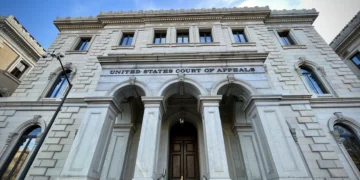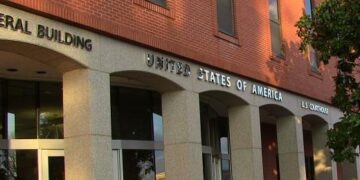Nov 10, 2024 Story by: Editor
A state judge has invalidated a New York law intended to make it easier for residents to sue over electoral divisions and voting practices that might weaken the political representation of minority groups. The ruling, issued by Orange County State Court Justice Maria Vazquez-Doles, found that providing special protections based on race and ethnicity under the law is unconstitutional.
Justice Vazquez-Doles’ decision, delivered on Thursday, also dismissed a lawsuit from six Black and Hispanic voters in Newburgh, New York, who challenged the town’s “at-large” board election system. They argued that the system in the majority-white town limited Black and Hispanic residents’ ability to elect candidates who represented them. The plaintiffs sought to have board members elected by district in Newburgh, which is located around 60 miles north of New York City.
The New York Voting Rights Act of 2022 was created to allow voters to challenge at-large elections that led to racially polarized voting patterns or hindered a racial, ethnic, or language-group community’s chances of electing their representatives.
However, Justice Vazquez-Doles ruled that this part of the Act violated the equal protection clause of the 14th Amendment. The U.S. Supreme Court referenced the same clause when it ruled last year that affirmative action programs in higher education were unconstitutional.
The plaintiffs’ attorney has indicated they plan to appeal the ruling. “We are confident that the New York Voting Rights Act is constitutional, and that on appeal that belief will be vindicated,” attorney David Imamura said.
The lawsuit, filed in March, was one of several brought under New York’s Voting Rights Act. In her ruling, Vazquez-Doles explained that the equal protection clause allows for race-based government actions only if they address a compelling state interest.
While ending discrimination against a racial group might satisfy that requirement, Vazquez-Doles noted that New York’s law did not require proof of past discrimination in challenges to electoral systems. She further suggested that the law could hypothetically allow white voters to request changes to election systems if they felt their voting power had been diluted.
“No compelling interest — as that term has been defined by the U.S. Supreme Court’s interpretation of the Equal Protection Clause — exists in protecting the voting rights of any group that has historically never been discriminated against,” Vazquez-Doles wrote.
She also pointed out that the law lacked clear standards on how much dilution of a group’s voting power would constitute a rights violation.
New York was among several Democratic-majority states that enacted voting protections in response to restrictive voting laws in some Republican-led states and failed voting rights legislation in Congress.
“When New York enacted the strongest voting rights law in the country, we knew there would be challenges,” said state Sen. Zellnor Myrie, a sponsor of the bill, in a statement on Friday. “I disagree with the court’s legal reasoning and expect this decision will be overturned on appeal.” Source: AP News

















